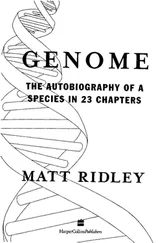The Queen - Matt Ridley
Здесь есть возможность читать онлайн «The Queen - Matt Ridley» весь текст электронной книги совершенно бесплатно (целиком полную версию без сокращений). В некоторых случаях можно слушать аудио, скачать через торрент в формате fb2 и присутствует краткое содержание. Жанр: Старинная литература, на английском языке. Описание произведения, (предисловие) а так же отзывы посетителей доступны на портале библиотеки ЛибКат.
- Название:Matt Ridley
- Автор:
- Жанр:
- Год:неизвестен
- ISBN:нет данных
- Рейтинг книги:4 / 5. Голосов: 1
-
Избранное:Добавить в избранное
- Отзывы:
-
Ваша оценка:
- 80
- 1
- 2
- 3
- 4
- 5
Matt Ridley: краткое содержание, описание и аннотация
Предлагаем к чтению аннотацию, описание, краткое содержание или предисловие (зависит от того, что написал сам автор книги «Matt Ridley»). Если вы не нашли необходимую информацию о книге — напишите в комментариях, мы постараемся отыскать её.
Matt Ridley — читать онлайн бесплатно полную книгу (весь текст) целиком
Ниже представлен текст книги, разбитый по страницам. Система сохранения места последней прочитанной страницы, позволяет с удобством читать онлайн бесплатно книгу «Matt Ridley», без необходимости каждый раз заново искать на чём Вы остановились. Поставьте закладку, и сможете в любой момент перейти на страницу, на которой закончили чтение.
Интервал:
Закладка:
Yet the problem of greatest choosiness in the species where choice least matters reappears: A single sage grouse cock may perform half of all the matings at one lek; it is not unknown for this top male to mate thirty or more times in a morning. 22 The result is that in the first generation the genetic cream is skimmed from the surface of the population, in the second the cream of the cream, in the third the cream of the cream of the cream, and so on. As any dairy farmer can attest, this is a procedure that quickly becomes pointless. There is just not enough separability in cream to keep taking the thickest layer. It is the same for sage grouse. If 10 percent of the males father the next generation, pretty soon all the
::: 142 :::
The Red Queen
females and all the males will be genetically identical, and there will be no point in selecting one male over another because they are all the same: This is known as the " lek paradox, " and it is the hurdle that all modern theories of sexual selection attempt to leap. How they do so is the subject of the rest of this chapter.
MONTAGUES AND CAPULETS
It is time to introduce the great dichotomy. Sexual selection theory is split into two warring factions. There is no accepted name for each party; most people call them " Fisher " and "Good-genes. "
Helena Cronin, who has written a masterful history of the sexual selection debate, 2' prefers "good-taste " and "good-sense. " They are sometimes also known as the "sexy-son " versus the "healthy-offspring" theories.
The Fisher (sexy-son, good-taste) advocates are those who insist that the reason peahens prefer beautiful males is that they seek heritable beauty itself to pass on to their sons, so that those sons may in turn attract females. The Good-geners (healthy-offspring, good-sense) are those who believe that peahens prefer beautiful males because beauty is a sign of good genetic qualities—
disease resistance, vigor, strength—and that the females seek to pass these qualities on to their offspring: Not all biologists admit to being members of one school or the other: Some insist there can be a reconciliation; others would like to form a third party and cry with Mercutio, "A plague on both your houses. " But nonetheless the distinction is as real as the enduring feud between Capulets and Montagues in Romeo and Juliet: This is biological civil war:
The Fisherians derive their ideas mostly from Sir Ronald Fisher ' s great insight about despotic fashion, and they follow Darwin in thinking the female 's preference for gaudiness is arbitrary and without purpose. Their position is that females choose males according to the gaudiness of their colors, the length of their plumes, the virtuosity of their songs, or whatever, because the
'
THE PEACOCK S TALE
::: 143 :::
species is ruled by an arbitrary fashion for preferring beauty that none dares buck. The Good-gene people follow Alfred Russel Wallace (though they do not know it) in arguing that arbitrary and foolish as it may seem for a female to choose a male because his tail is long or his song loud, there is method in her madness. The tail or the song tells each female exactly how good the genes are of each male. The fact that he can sing loudly or grow and look after a long tail proves that he can father healthy and vigorous daughters and sons just as surely as the fishing ability of a tern tells his mate that he can feed a growing family. Ornaments and displays are designed to reveal the quality of genes.
The split between Fisher and Good-genes began to emerge in the 1970s once the fact of female choice had been established to the satisfaction of most. Those of a theoretical or mathematical bent—the pale, eccentric types umbilically attached to their computers—became Fisherians. Field biologists and naturalists—
bearded, besweatered, and booted—gradually found themselves Good-geners."
1S CHOOSING CHEAP?
The first round went to the Fisherians. Fisher 's intuition was fed into mathematical models and emerged intact. In the early 1980s three scientists programmed their computers to play an imaginary game of females choosing long-tailed males and bearing sons that had the long tails and daughters that shared the preference of their mothers. The longer the male 's tail, the greater his mating success but the smaller his chances of surviving to mate at all: The scientists' key discovery was that there exists a "line of equilibrium " on which the game can stop at any point. On that line the handicap to a female ' s sons of having a long tail is exactly balanced by the advantagethose sons have in attracting a mate.''
In other words, the choosier the females, the brighter and more elaborate the male ornaments will be, which is exactly what you find in nature. Sage grouse are elaborately ornamented, and
::: 144 :::
The Red Queen
only a few males get chosen; terns are unornamented, and most males win mates.
The models also showed that the process could run away from the line of equilibrium with Fisher 's "ever-increasing speed "
but only if females vary in their (heritable) preference and if the male 's ornament is not much of an encumbrance to him. These are fairly unlikely conditions except early in the process when a new preference and a new trait have just emerged.
But the mathematicians discovered more. It mattered greatly if the process of choosing was costly to females. If in deciding which male to mate with a female wastes time that could be more profitably spent incubating eggs or she exposes herself to the risk of being caught by an eagle, then the line no longer stands: As soon as the species reaches it, and the advantages of long tails are balanced by their disadvantages, there is no net benefit to being choosy, so the costs of choice will drive females into indifference.
This looked to be fatal to the whole Fisher idea, and there was brief interest in another version of it (which is known as the "sexy-son "
theory) that suggested sexy husbands made bad fathers—a clear cost to being a choosy female:"
Luckily, another mathematical insight came to the rescue.
The genes that cause the elaborate ornament or long tail to appear are subject to random mutation. The more elaborate the ornament, the more likely that a random mutation will make the ornament less elaborate, not more. Why? A mutation is a wrench thrown into the genetic works: Throwing a wrench into a simple device, such as a bucket, may not alter its function much, but throwing a wrench into a more complicated device, such as a bicycle, will almost certainly make it less good as a bicycle: Thus, any change in a gene will tend to make the ornament smaller, less symmetrical, or less colorful: This "mutational bias " is sufficient, according to the mathematicians, to make it worth the female 's while to choose an ornamented male because it means that any defect in the ornament might otherwise be inherited by the sons; by choosing the most elaborate ornament she is choosing the male with the fewest mutations: The mutational bias is also sufficient, perhaps, to defeat the
'
THE PEACOCK S TALE
::: 145 :::
central conundrum that we set the theories earlier—the fact that if the best genetic cream of the cream is taken off each generation, there will soon be no separability left in the cream. Mutational bias keeps turning some,of the cream back into milk."
The result of a decade of mathematical games, then, has been 'to prove that the Fisherians are not wrong. Arbitrary ornaments can grow elaborate for no other reason than that females discriminate between males and end up following arbitrary fashions; and the more they discriminate, the more elaborate the ornaments become: What Fisher said in 1930 was right, but it left a lot of naturalists unconvinced for two reasons: First, Fisher assumed part of what he set out to prove: That females are already choosy is crucial to the theory: Fisher himself had an answer for this, which was that initially females chose long-tailed males for more utilitarian reasons—for example, that it indicated their superior size or vigor: This is not a foolish idea; after all, even the most monogamous species, in which every male wins a female (such as terns), are choosy. But it is an idea borrowed from the enemy camp: And the Good-geners can reply: "If you admit that our idea works initially, why rule it out later on? "
Читать дальшеИнтервал:
Закладка:
Похожие книги на «Matt Ridley»
Представляем Вашему вниманию похожие книги на «Matt Ridley» списком для выбора. Мы отобрали схожую по названию и смыслу литературу в надежде предоставить читателям больше вариантов отыскать новые, интересные, ещё непрочитанные произведения.
Обсуждение, отзывы о книге «Matt Ridley» и просто собственные мнения читателей. Оставьте ваши комментарии, напишите, что Вы думаете о произведении, его смысле или главных героях. Укажите что конкретно понравилось, а что нет, и почему Вы так считаете.












